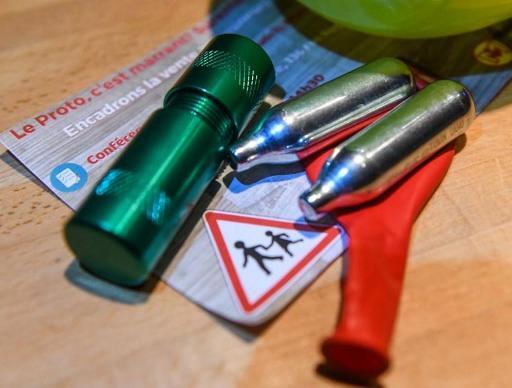One in seven Belgian drivers under 34 years old regularly uses laughing gas (or nitrous oxide) before driving, according to a study by the Vias road safety institute.
Although the substance cannot be detected by drug control on the roads, it does have a significant impact on driving ability and road safety, Vias and the Poison Control Centre warn in a statement.
In total 6% of Belgian drivers admit to driving after inhaling laughing gas at least once a month, according to the study carried out on a representative sample of 6,000 Belgians.
Laughing gas, which "has been of considerable interest in recent years,” seems to be particularly popular among young people in Brussels: 15% of drivers admit to using it regularly. That’s three times more than in Flanders and Wallonia.
Overall, men (8%) are twice as likely to drive under the influence of laughing gas as women (4%). In Brussels, nearly one in three (31%) young men reported driving under the influence of this substance.
According to the survey, 5% of respondents drive under the effect of laughing gas combined with other drugs, and a mere 1% indicated taking laughing gas alone.
Related News
"Accidents due to the consumption of volatile substances, such as laughing gas, are not rare and can be fatal", said Professor Dominique Vandijck, deputy director general of the Anti-Poison Centre.
"Combining it with other drugs such as alcohol, tranquillisers or other drugs enhances the effect and makes the use extremely dangerous.”
Laughing gas induces a feeling of euphoria immediately after inhaling, often accompanied by laughter and hallucinations. Dizziness, nausea, disorientation in time and space, reduced reactivity and a general feeling of drunkenness are common symptoms.
Intoxication can also turn into aggression and lead to confusion and recklessness. Also, if the user breathes too much laughing gas and not enough air, the brain lacks oxygen, which can lead to unconsciousness, coma and even death.
The Brussels Times

